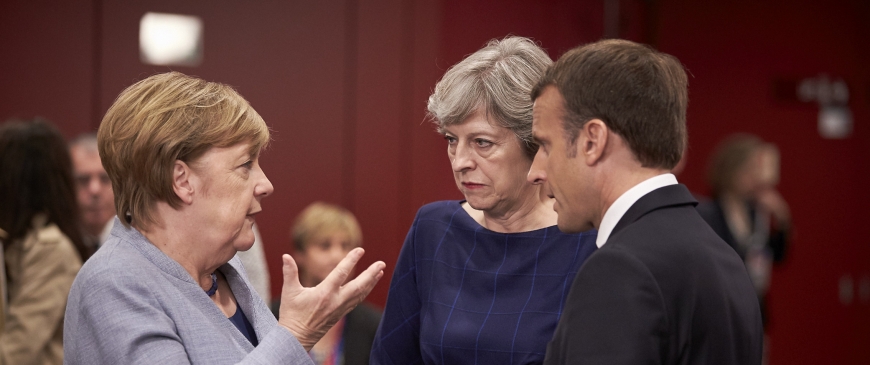
The one thing May must remember: The 27 will not split
Theresa May will be on a hiding to nothing this week if she tries to present a Brexit plan on managed divergence in the hope that it will divide and conquer the EU. Although EU countries stand to be affected in different ways by Brexit and some do not agree with the European Commission’s uncompromising stance, they will all toe the line for a variety of reasons — the most obvious that it is proven to be the best way for the EU to get what it wants.
To date, the EU’s position on Brexit has held firm. During the talks over the terms of the divorce, all member states wanted as much money as possible, citizens’ rights to be protected and were happy to let Ireland take the lead on the border issue.
While the 27’s economies are indeed exposed to Brexit, any damage pales in comparison to the potential disintegration of the single market. Ireland’s economy is, according to some measures, almost as exposed as the UK’s to Brexit.
But the potential hit to Germany, the Netherlands, Belgium and tiny Malta is less than half that of the UK, and for all the other economies, the damage is much smaller.
Simply put, Brits may buy lots of German cars and Italian prosecco, but Britain needs the EU more than the EU needs Britain.
Furthermore, while it’s true that some EU countries are uncomfortable with the hard Brexit line taken by the European Commission, Germany and France, the countries that want a softer deal want it to be softer in different ways and they have no obvious leader.
And with the EU about to start discussing its next multi-annual budget, smaller countries are unlikely to want to raise objections with Germany or France for fear of biting the hand that feeds them.
The argument that Britain has leverage thanks to the City of London’s status as Europe’s largest financial centre has been overdone. In those types of finance where Brexit threatens to substantially raise the cost of capital, or worse, cause financial instability, City banks will have to shift operations or change their business practices before Brexit.
If there is an accident that the regulators did not foresee, the 27 would agree to temporary access to the City to deal with any problems, and the UK could not object, since it would face financial stability risks too.
While the offer of a preferential migration regime for EU citizens would certainly buy good will, officials in Brussels point out that, without EU law in operation in the UK, promises made now by the UK government do not bind the hands of future governments.
Even if the existing government chooses a liberal regime, future governments might choose a more restrictive one.
Offering some money for economic development in the EU’s poorer countries might help add some small pluses to a free trade agreement. However, these benefits would be small, unless May changes her red lines over the jurisdiction of the European Court of Justice and free movement.
Bottom line: a stance of complete unity worked in phase one of the talks. The 27 got what they wanted on the sequencing and the withdrawal agreement by acting together.
The commission, Germany and France are in a strong position to persuade the others that continued unity will help them to pursue their core interest — the EU’s integrity — and that the economic costs to the 27 are manageable. May is about to be reminded that splitting up is hard to do.
John Springford is deputy director of the Centre for European Reform
